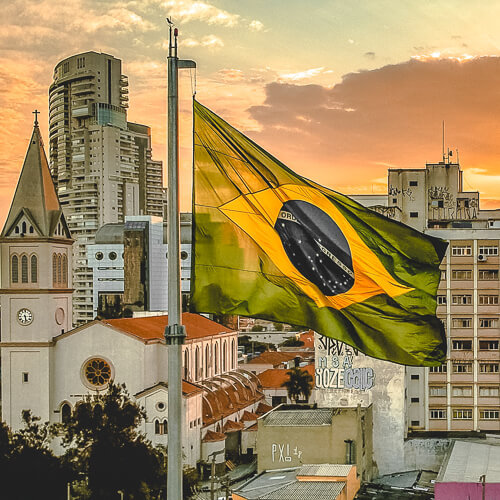
Brazilian operator Claro is stepping on the gas with 5G, and is already making the claim that it intends to focus on 5G smartphones from 2022 onwards.
Claro, part of Mexico's América Móvil owned by billionaire tycoon Carlos Slim, Telefonica Brasil and TIM Brasil each secured a 100MHz nationwide license in the 3.5GHz frequency during the long-awaited 5G auction in November 2021.
Paulo César Teixeira, CEO of Claro, has now been telling local newspaper Globo that his intention from next year is only to buy 5G devices. "I don't want to buy 4G anymore," the CEO reportedly said.
Figure 1:  Phone envy: The CEO of Claro Brazil has indicated the service provider will only buy 5G phones from 2022.
Phone envy: The CEO of Claro Brazil has indicated the service provider will only buy 5G phones from 2022.
(Source: Unsplash)
He also indicated that Claro is going to test a prototype from Qualcomm and Brazilian handset and PABX manufacturer Intelbras: the pair have teamed up to produce 5G customer premise equipment (CPE) using the second generation Qualcomm 5G fixed wireless access (FWA) platform with the Snapdragon X62 5G modem-RF system and Qualcomm Wi-Fi 6 and 6E.
Claro is already offering 5G services based on Ericsson's dynamic spectrum sharing (DSS) technology, which enables the parallel operation of 4G and 5G services via one frequency band. Teixeira said more than one million customers will have a 5G device by the end of 2021.
Auction finally completed
Brazilian telecom regulator Anatel concluded the 5G auction on November 5, 2021, offering spectrum in the 3.5GHz frequency, as well as blocks in the 700MHz and 2.3GHz for 4G services, and in the 26GHz band for fixed broadband. The auction raised a total of BRL47.2 billion (US$8.5 billion).
According to Fitch Ratings Brazil, the investments in 5G are not expected to materially pressure the total capex of the three main operators.
TeleGeography noted that the 3.5GHz licenses generated the highest bids: national 3.5GHz concessions achieved bids of BRL22.79 billion, while regional 3.5GHz licenses gained BRL7.92 billion. The 700MHz band attracted bidding commitments of BRL3.57 billion, 2.3GHz spectrum lots earned a total of BRL9.45 billion and the 26GHz band raised BRL3.45 billion.
Want to know more? Sign up to get our dedicated newsletters direct to
your inbox
Other winning bidders included local operators Brisanet, Sercomtel and Algar Telecom. Private equity-backed Winity Telecom picked up 700MHz frequencies, while Consorcio 5G Sul (Copel Telecom and Unifique), Cloud2u and Neko Servicos acquired selected spectrum blocks around the country.
In early December, Anatel announced that the contracts for the ten winning bidders have now been officially signed. President Jair Bolsonaro declared that "by the middle of next year, all capitals will have 5G."
Brazil has been pressuring operators to move to standalone 5G as quickly as possible, rather than passing through the interim non-standalone stage.
Related posts:
— Anne Morris, contributing editor, special to Light Reading
About the Author(s)
You May Also Like




_International_Software_Products.jpeg?width=300&auto=webp&quality=80&disable=upscale)







